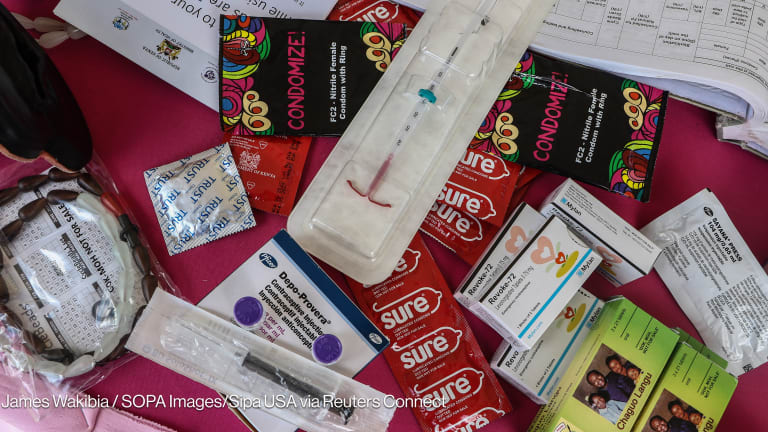
This week a hugely important conference on family planning is taking place in Indonesia, a conference that nearly never happened. In November, a volcano erupted in Lombok, closing the airport in Bali and postponing the original event. The family planning community rallied together to organize a new conference in just two months, reflecting a shared sense of urgency about meeting our family planning promise to women and girls.
It may not seem like it to those of us for whom deciding if and when to have children — or how many to have — involves little more than a trip to the doctor or the pharmacy. But for many women and girls there is, in the words of a young woman I met recently in Niger, no other option but to hope and pray.
You get a glimpse of just how much is at stake when you look through the eyes of two young women in Bihar, India. Sushma Devi and Manju Devi don’t only share a last name. They are also both married, mothers, in their late 20s, from poor families and rural communities. They live about 20 miles from each other — but their lives are worlds apart.
The reason? Sushma had access to family planning advice and contraceptives from an early age, while Manju did not. We know that the effect of this has far-reaching consequences. All the data shows that when women can plan and space their pregnancies, they are better able to raise healthier families and continue to make an economic contribution. Over time, this all adds up to stronger communities and stronger countries.
That’s why three years ago, the world made a commitment to an ambitious goal. More than that, we made a promise. A promise to 120 million women and girls that by 2020 they would have access to family planning services and contraceptives if they wanted it.
In the time since, millions of unintended pregnancies have been avoided and thousands of lives saved. That’s great news — but to keep our promise, we need to do much more and we need to do it now.
For our part, the foundation is investing an additional $120 million over the next three years. More money will go into advocacy to keep family planning firmly on the agenda. Resources will also be devoted to improve the quality of services women and girls receive. And we will fund expansions of proven urban health programs across more parts of Africa and Asia.
We are at a critical moment. Sushma and Manju represent the two futures that lie ahead of us: One is full of promise, the other is a broken promise. The International Conference on Family Planning is back on and 120 million women and girls are counting on us to act.
Follow the discussion taking place at the International Conference on Family Planning in Indonesia, where @DevexLeanAS and @richard_devex are on the ground bringing you updates and interviews. Join the conversation @devex using #ICFP2016.








